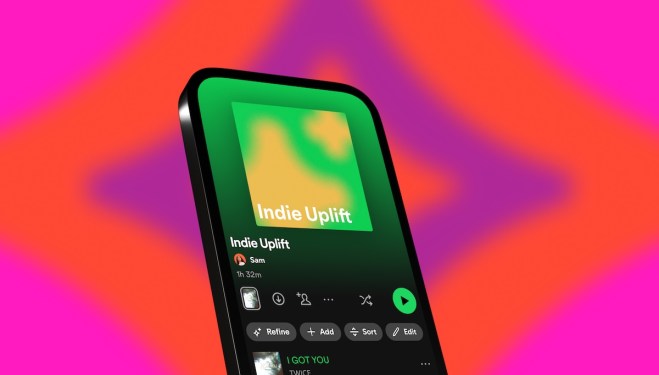Spotify announced updates to its AI policy on Thursday. The changes are designed to better indicate when artificial intelligence is used to create music, reduce spam, and clearly state that unauthorized voice clones are not allowed on the service.
The company will adopt an upcoming industry standard for identifying and labeling AI music in credits, known as DDEX. Under this system, labels, distributors, and music partners submit standardized disclosures about the use of AI. This provides detailed information, such as whether AI was used for vocals, instrumentation, or post-production.
Spotify’s Global Head of Marketing and Policy, Sam Duboff, explained that AI use in music is a spectrum, with artists incorporating it in various parts of their workflow. He noted that the new standard allows for accurate and nuanced disclosures instead of forcing songs into a simple AI or not AI binary.
As part of the announcement, Spotify directly clarified its stance on AI-enabled personalization. It stated that unauthorized AI voice clones, deepfakes, and any other form of vocal replication or impersonation are prohibited and will be removed from the platform.
While the DDEX standard is still developing, Spotify has received commitments from 15 labels and distributors who plan to adopt the technology. The company hopes its move will encourage wider industry adoption.
Because AI tools make it easier to release music, Spotify also plans to cut down on potential spam. This fall, the company will roll out a new music spam filter. This filter will target spam tactics, tag them, and stop recommending those tracks to users.
Duboff stated that AI has made it easier for bad actors to mass upload content and manipulate systems. While Spotify has fought these tactics for years, AI is accelerating the issue with more sophistication, requiring new solutions. The filter will be rolled out gradually to ensure it targets the right signals, with more signals added over time.
Related to this, Spotify will work with distributors to address “profile mismatches.” This is a scheme where someone fraudulently uploads music to another artist’s profile across streaming services. The company aims to prevent more of these incidents before the music goes live.
Despite these changes, Spotify executives emphasized they still support the use of AI when it is non-fraudulent. The Vice President and Global Head of Music, Charlie Hellman, said the goal is not to punish artists who use AI authentically and responsibly. He expressed hope that AI tools will enable greater creativity, but stated that the platform must aggressively protect against bad actors who game the system.
These updates follow a rapid increase in AI-generated music across the industry. Recently, an AI-generated band called Velvet Sundown went viral on Spotify, leading to user complaints about a lack of transparency in labeling AI tracks. Meanwhile, rival streaming service Deezer shared that about 18 percent of the music uploaded to its service daily is now fully AI-generated, amounting to over 20,000 tracks.
Spotify did not share its own metrics directly. However, Duboff told reporters that all streaming services have almost exactly the same music catalog, as tracks are delivered to all platforms. He added that uploading AI music does not necessarily mean anyone is listening to it or that it generates revenue. He concluded by noting that AI usage is increasingly a spectrum of how artists and producers are using the technology.

